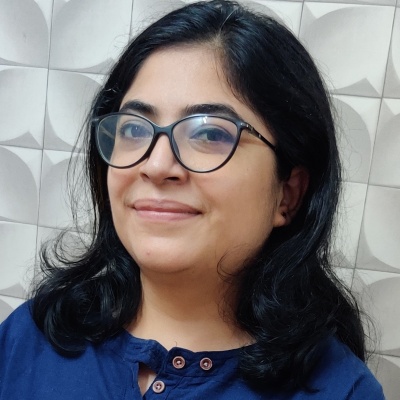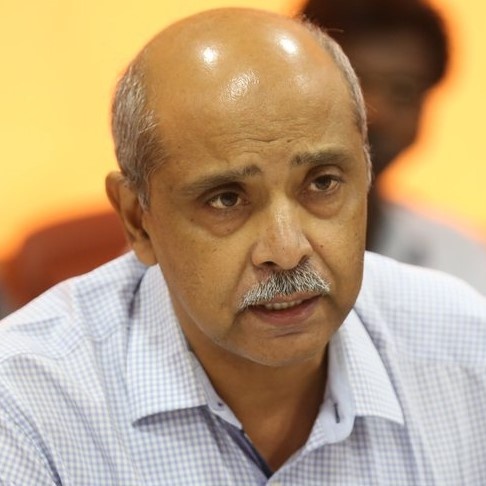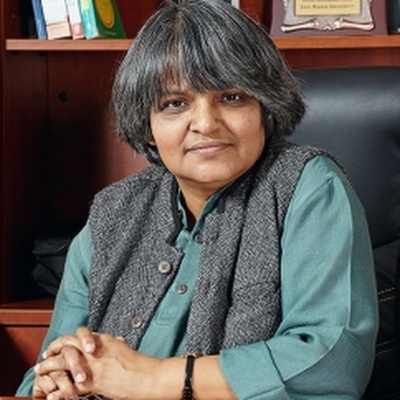Higher education and the pandemic in India
- Jyoti Arora, Jawaharlal Nehru University
- Saumen Chattopadhyay, Jawaharlal Nehru University
- Rupamanjari Ghosh, Shiv Nadar University
Event Materials
This event is now archived and we are pleased to provide the following event media and assets, along with the original event overview.
With 37.3 million students and 1.4 million teachers India has the third largest higher education system in terms of people after China and the United States, and with India moving past China in terms of population, and the ongoing expansion of post-school enrolment, India is on track to become the largest higher education nation. The country already has the largest number of individual institutions, with 993 universities and nearly 40,000 colleges in 2018-19. However, higher education and those who work and study in it face many challenges. India has a federal system and most of the policies and regulations affecting higher education, especially the large private college sector where quality is often seen as problematic, are at state level. The machinery of national coordination has been periodically reworked. There is a severe shortage of resources at all levels, relative to aspirations, in a country where the majority of people still live in rural areas and there many very pressing material needs, from basic health and welfare to modernisation, infrastructure and urban development. There are abiding issues of social and cultural equity in educational provision and participation, the complexities of a highly diverse country in terms of region and language, politicised and unsettled relations between government and autonomous public universities, tensions around academic freedom. Internationalisation and foreign university involvement in India are subject to ongoing debate. India is now the world’s third largest producer of scientific papers but there is continuing debate about the development of and applications of research, about whether India should aspire to ‘World-Class universities’, and if so how that goal might be achieved.
The range of policy issues in higher education are currently in the melting pot. On 29 July the Government of India unveiled the National Education Policy (NEP) 2020, only the third since India’s Independence in 1947. The NEP, which has drawn wide respect but is the subject of active discussion on many points, sets down a national goal of a 50 per cent Gross Enrolment Ratio by 2035, up from 28 per cent prior to the pandemic, and proposes major changes in the architecture of the regulatory system for higher education, based on four pillars of the regulatory structure: regulation, accreditation, funding, and quality setting by professional bodies. The NEP argues for the growth of vocational enrolments to 50 per cent of all enrolment by 2025. The emphases on online and distance learning, and giving freedom of course choices to students, is likely to accelerate a transition from conventional institutional delivery towards MOOCs. On top of all of these issues Indian higher education is now grappling with the pandemic, which on 1 September this year was recorded as having claimed 65,228 lives across the nation. Covid-19 has fundamentally disrupted economic and social life, and upended normal higher education provision.
Schools and higher education institutions in India will not reopen their gates before the end of September, six months since the lockdown was imposed on 25 March. The transition to online teaching has not been smooth and uniform. There have been serious inadequacies in infrastructure at the institutional level, and for the majority of students returning to their homes, acute and insurmountable problems of access to the Internet. This has exacerbated the social digital divide. The University Grants Commission (UGC) argued towards the end of the last semester that higher education should opt for MOOCs but this intervention did not make much of a difference. There was mounting resistance from some states, when the UGC reversed its earlier decision which bestowed autonomy to the institutions to decide on their evaluation. The Supreme Court upheld this UGC decision, and the states and the universities are now required to complete the process by October. In relation to the University of Delhi, the High Court has been asking questions so as to ensure smooth conduct of online examinations. The conduct of the national level test for engineering and medical courses, which were supposed to take place in April, has been rescheduled to September. Although the public transport system has not been fully restored to normal level, the government has decided to go ahead with the conduct of the examinations, despite opposition from Chief Ministers in seven Indian states. Students’ unions and the teachers unions have expressed serious concern about the hurdles now being experienced by students. As in many parts of the world, the resumption of classes will be accompanied by ongoing problems of ongoing health and safety concerns, localised flare ups of the pandemic, onsite organisational challenges, improvised combinations of online and face to face modes, and questions of short-term and longer-term financial sustainability of institutions.




